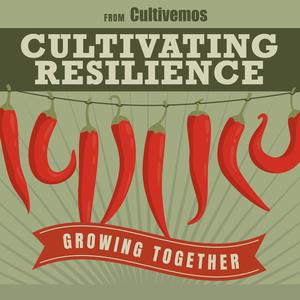Financial Stress Resources

Ag Business and Economics
MT Agricultural Land Lease Information
MSU Extension Family Economics
MSU Extension Financial Management Publications
MSU Extension Savings and Investing Publications
Solid Finances -Series designed to provide adults with an unbiased resource for enhancing their personal financial skills.
Am I elgible for financial assistance?
Montana Senior Financial Planning
Montana Protective and Legal Services
Financial eligibility services
Debt Management in Tough Times
Financial and Risk Management Analysis Tools
Help for Indigenous American Entrepreneurs
Help paying for food and housing
Supplemental Nutrition Assistance Program (SNAP) Information
Temporary Assistance for Needy Families (TANF) Information
Apply for Supplemental Nutrition Program for Women, Infants, and Children (WIC)
Apply for Low-Income Energy Assistance (LIEAP) to help pay utility bills
Using a Homestead Declaration to Protect Your Home from Creditors
Help paying for Medical Needs
Health Care Coverage (Medicaid and Health Montana Kids Plus) Information
Family Finances
Family Finances-Keep Lines of Communication Open
Tips for Teens- How to Contribute to Family Needs in Tough Times
Helping Friends Cope with Financial Crisis
National programs for farmer/rancher assistance and more information
Farm Crisis Assistance - find local and national resources for financial and disaster aid assistance
Farm Aid Farmers Resource Network - financial, marketing, crisis, and other farmer resources as well as a direct farmer hotline for assistance
Farm Town Strong- the American Farm Bureau Federation and the national Farmer's Union have teamed up to provide information and resources
Farm Service Agency's Farm Loan Programs
Interview with Dr. George Haynes
Dr. George Haynes of the Montana State University Agricultural Economics Department discusses preparing for the future, the farm bill, and factors related to financial stress.
Speaker 2 0:00
My name is George Haynes. I'm a professor here in the Department of Ag Econ economics
and also the extension specialist here, in terms of the things that I'm working on,
I spend most of my time at this juncture in my career in working on agricultural policy
issues primarily around stimulus payments,
Unknown Speaker 0:21
Tell me some of the work you've done maybe around that policy, or just Montana agriculture
in general.
Speaker 2 0:26
Okay, well, the most important work that we do and agricultural policies around the
farm bill, and the farm bill is, of course, a hot topic right now, because it's being
negotiated in Washington. So we do a lot of work with presenting that to farmers and
ranchers here in the state of Montana, talk to them about how they might utilize the
Farm Bill. The other things that I work on, I do some work in farm finance and accounting,
bookkeeping is probably more accurate. We do some LED presentations here for the state
of Montana, for people that are not familiar with agriculture. And we do that in conjunction
with the Bureau of Economic Research in Israel. And we usually talk to about 3000
people or so a year and knowing some of that. And then more recently, we've been working
on your cultural innovation project here in the College of Agriculture, and sponsoring
and agricultural innovation summit, to bring together people that have innovative
ideas that they'd like to talk to people about.
Unknown Speaker 1:25
Cool. Sounds like a lot of impactful work. So yeah, one of the big things at the farm
and ranch stress clearing house that we think about is these different factors that
people have that create stress in their lives. One of those big factors is financial
stress. Do you have any connection with that?
Speaker 1 1:45
Well, we have worked with farmers and ranchers on issues around retirement, and retirement,
you know, it takes up a couple different avenues, one of them being what are you going
to do with your estate, your land resources and other things that you have to give
away? And then secondly, what are you going to do with decision making who's, who
is you think about retiring from the farmer Ranch is going to follow in your footsteps.
So those are the kind of the two topics that we end up dealing with, at least in this
agricultural economics department. And, and there is a substantial amount of stress
around the fringes of both of those decisions. Right?
Unknown Speaker 2:26
Can you say more about that? How do you help people manage that?
Speaker 2 2:29
Well, the most important contribution that agricultural economists have is to talk
to people about risk management. And risk management really forces you to have a discussion
that we'll talk about how you can avoid risks. And if you can avoid some kinds of
risks, or at least pass the purchase insurance and other things to pass some of that
risk on to other people, you know that those become really important considerations
as you think about stress and being in business. Because if you have the ability to
share your stress with somebody else in some way or another, it provides them, you
know, a little bit better working environment for you. So that's that's what we talk
about a lot about as risk management from a number of different angles, one production,
one that might have to do with marketing, another one with this human resources you
might deal with, with labor that you might have hired, or they didn't have to deal
with your own well being like health and your health status, and so on. So that's
that's how we begin to think about how we contribute to that discussion.
Unknown Speaker 3:38
Cool. Like,there's a lot, a lot of work to be done there. Yeah, I guess kind of on
to that next question. How can something you've touched on a little bit? How can producers
financially plan for the future? Like you said, with risk management?
Speaker 2 3:52
Well, I think one of the stories that we tell every time we go out is planning and
requires you to know your costs. And sometimes I think that gets in the way of businesses
that don't do very well as they don't necessarily know their cost structure very well.
If you get into a business environment where you begin to think about the business
not being successful, all of a sudden, you've introduced a lot of stress into, into
your life in general. And so we start off, really thinking about it from that angle,
and then usual place to meet me begin to conduct a conversation about something like
stress. But that becomes really important when you think about agricultural economic
issues that you might face.
Unknown Speaker 4:34
Have you found that it's hard to have those conversations?
Speaker 2 4:37
Well, that's really challenging to have conversation with people because you're asking
them to oftentimes talk to you about things that they would prefer to talk to their
accountant about, or maybe a lawyer that they're doing business with. But the thing
about putting it out in an educational setting to sit down with somebody and and talk
about these issues you're facing requires the developing trust with these people,
you know, a lot fraud. And that takes some time, you have to know these people pretty
well before you really get down to things that are really important.
Unknown Speaker 5:11
Have you have you seen the benefits from that?
Speaker 1 5:15
Well, there's substantial benefits, I think as you in primarily to us, it just comes
back with people, sending us a thank you note once in a while, or giving us a call
and thanking us for at least pointing them in the right direction to think about us.
Or me in particular, advising somebody about their payment plan or to be or what they're
on the other side of it is with the estate or the decision making side of that, really,
it there's other professional resources that are really important for that one, you
need to have a pretty good accountant that's willing to help you and also a good lawyer
as well, as you be in you know, tailor these things for your own operation or for
you individually, so that we can help them, get them pointed in the right direction.
Unknown Speaker 6:02
On to a different issue, as producers deal with those rising commodity prices and
inflation especially as we've seen in the last couple of years, do you have any tips
on how they can manage stress related to those factors?
Speaker 1 6:16
Well, there's lots of ways of being approached this, again, I'll go back to what I
talked to you about before, this whole idea on the production side, at least know
one year costs of production. And you know, What's it cost you to be in business become
really important components of that. But as you think about the farm and ranch operation
that you're on, you know, you're rising commodity prices, and have been, you know,
a kind of a feature of agricultural more recently, but a company that had been a rising
input costs in, in there's the farm and ranch, community is, is a big as a lot of
stake in the Farm Bill, in particular, the farm bill is important to them, because
that's where the safety net is provided for agriculture. And so we believe it's really
important that people understand the Farm Bill, and what the advantages of the Farm
Bill happened to be. And then secondly, what are the benefits of buying crop insurance
and participating in those programs, because we've we're in a time period now, as
opposed to, you know, 100 years ago, when farmers were doing very well, we just let
them go out of business. That's not the story anymore. There's lots of programs that
are there. And they're there to help reduce the level of stress of running those businesses,
being aware of the programs that are available to you now you might utilize them becomes
an important part of that. And in helping people you know, survive in the market that
we're in that has some substantial challenges.
Unknown Speaker 7:48
Are there ways that people can easily find these programs, and I get involved.
Speaker 2 7:53
Like I said, I think that one place for people to go for certain is extension. Yeah,
that's a good starting block for any of these programs. And then it will introduce
you in one way or another to these or these the federal and state agencies that help
you with these things. In Montana, it's important to know what goes on with Farm Service
Agency, it's important to know what goes on with risk management agency, all those
become really important components of the safety net. But you have to know what's
going on in those in those programs and to make you make use of them. The other important
element of that is just, you know, moving from extension and what we can do for you,
but becoming not only familiar with programs, but also with the people that are administering
those programs as well. So we try to help facilitate some of that.
Unknown Speaker 8:54
Do you have any tips on how people can cope with financial crisis, people get to a
certain point, things have run their course and now they're at a point of very high
levels of stress. You have any tips on this?
Speaker 2 9:06
We've been working on a project here in the in the department on negotiation? I think
it's a lot of what applies to negotiation applies here. I think that there are a number
of ways of viewing this one of the most important elements I think, as you begin to
think about stress being challenging to your business in your family is that you first
have to develop trust, and it might be for some people developing trust even within
their family or the people that they're doing business with. So he that's a starting
point, I think is we think about those, those just trying to mitigate some of those
those issues. The other part of it is what I've already talked about a little bit
before but there are programs insurance as part of that. It's we think of programs
that are helped protect you from disasters. Several of those programs were the most
useful ones, probably in Montana, more recently has been the livestock forage programs,
but they, it's as a Farm Service Agency Program. So there's these developing, you
know, a trusting environment, and then following that up with making sure you're aware
of these resources that are available to you.
Unknown Speaker 10:26
On that final question, do you have any like books or media you'd recommend to people
who want to learn more about ways to financially plan or like learn about those programs?
Speaker 2 10:38
Well, I think the best place to handle some of the work around production costs are
just that side of the annoy your cost sort of story is to where the University of
Minnesota has a program called FinPlan in there is a component of that that is also
a helps you do some financial planning. And the advantage of that program is that
it allows you to contribute some data to their databases, they're gonna ask you some
questions about that. But it also then allows you to receive advice from the analyse
allows you to compare yourself with other businesses that might look similar to yours.
So that's a place I think I would probably encourage people to start, if they want
to bring in at least get their fiscal house in a little bit better order is to begin
working with organizations like that they're really set up to help farmers grow and
prosper.
Unknown Speaker 11:35
Can you think of any specific Montana ones like that?
Speaker 2 11:38
Well, extension, we have a substantial publications and extension as well to address
all of these issues. And so no, I would encourage them to look at our our Hmong guides
that we do here. We have an A econ empty that's website that we run here in our department,
as well, on both of those sources, would be really useful to many Montanan producers.
Speaker 2 12:07
I guess kind of my final question, is there anything I haven't asked you about that
you think is really important when it comes to people wanting to learn more about
ways to manage financial stress?
Speaker 2 12:21
One thing I think that we may be in econ genomics in general probably haven't spent
as much time as obviously people that are more training in psychology or mental health
counseling has certainly done but I think, no, I think you've, you've tapped into
at least the ways that we think about contributing to those, those issues. And the
way that we can do it, I think is in the way that we think about it as economists,
in my view, the way that we will help you make your financial position better, or
at least take one of those stress items maybe away from you. And these things that
we've talked about today will certainly help with that. So cool. Well, thank you so
much for your time.
Transcribed by https://otter.ai
Interview with Joel Schumacher, MSU Extension Ag Economist
Extension economist Joel Schumacher discusses breaking down the stigma of talking about finances, having a personal plan, and personal economics as ways to tackle financial strain and stress.
Podcasts Addressing Finances
 |
Cultivating Resilience: "Farm Finances"The impact and stress of finances in farming is explored, in addition to suggestions, methods, and useful resources from farmers themselves. |
 |
Cutting Fences Podcast: "Separating Your Self-Worth From Your Net Worth"Jolene Brown discusses finances as they relate to family business and agricultural legacy. Listen to Jolene Brown on the Cutting Fences Podcast on Spotify. The podcast episode, "Separating Your Self-Worth From Your Net Worth," on the Cutting Fences podcast is also available for free on Audible. |
Podcasts Addressing Finances
Cutting Fences's "Separating Your Self-Worth From Your Net Worth"
The podcast episode, "Separating Your Self-Worth From Your Net Worth," on the Cutting Fences podcast is also available for free on Audible.
Cultivating Resilience's "Farm Finances"
